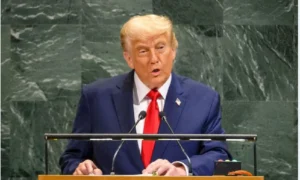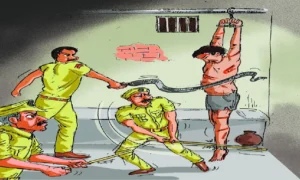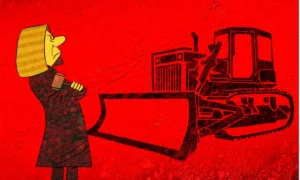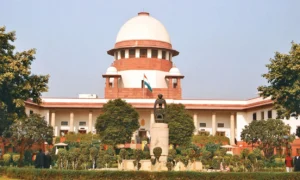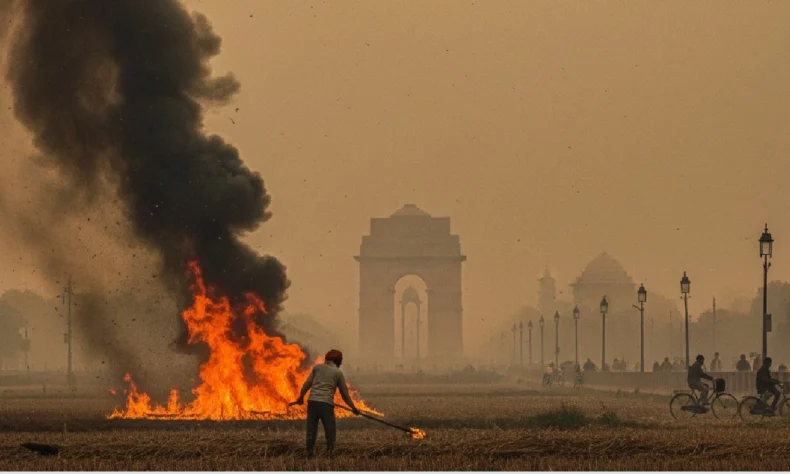
By Dr Swati Jindal Garg
Every winter, Delhi and its neighbouring states sink into a haze of smog that has become a grim ritual of the season. This time, however, the Supreme Court has signalled that enough is enough. In a recent hearing, a bench led by Chief Justice BR Gavai and Justice K Vinod Chandran directed Punjab, Haryana and Uttar Pradesh to fill long-pending vacancies in their State Pollution Control Boards within three months. As an interim step, the Court also ordered appointments on deputation or contract basis to ensure that enforcement does not collapse during the peak pollution season.
A SYSTEM FAILING ON BASICS
The directions came while hearing contempt petitions highlighting the chronic understaffing of Pollution Control Boards. The Court had earlier flagged these vacancies as a central reason for enforcement failures in curbing toxic air in the NCR. Haryana alone has seen vacancies climb from 137 to 144 posts. Punjab admitted that though 36 posts had been advertised, 43 vacancies were still “under process”. The result: when winter arrives and the air thickens with pollutants, there is simply not enough manpower to enforce regulations.
BEYOND TOKEN MEASURES
The Court also expressed surprise over the withdrawal of prosecutions under the Environment Protection Act, 1986, questioning why penalties are now being limited under the Commission for Air Quality Management (CAQM) Act, 2021. The chief justice went further, suggesting the Union to consider penal provisions for farmers who persist with stubble burning—a leading contributor to winter smog—while also urging the government to explore constructive alternatives like converting crop residue into biofuel or brick-making material. “Farmers remain at our heart,” the chief justice remarked, “but if you want to protect the environment, you cannot just see it on a five-year basis.”
GRAP: GOOD INTENTIONS, HARSH FALLOUT
For years, the Graded Response Action Plan (GRAP) has been invoked whenever air quality dips into the “poor” category. With four escalating stages—from restrictions on vehicles to blanket bans on construction—GRAP was meant as an emergency shield for public health. Yet, the Court noted its devastating economic side-effects: halting construction sites, pushing thousands of daily-wage labourers out of work, and causing disputes over inadequate compensation.
Critics argue that while GRAP curbs some sources of pollution temporarily, its benefits pale in comparison to the havoc it wreaks on lives and livelihoods. Measures such as anti-smog water guns, poorly communicated vehicle restrictions and blanket bans have created confusion and hardship without solving the core problem.
THE SHIFT TO PREVENTION
The Supreme Court made it clear that India cannot rely solely on prohibitory bans. Instead, it pressed for preventive and sustainable solutions. The suggestions included:
- Adopting green building initiatives rather than banning construction outright.
- Developing a vehicle registry system to directly notify owners about restrictions.
- Deploying anti-smog guns during off-peak hours to avoid traffic chaos.
- Expanding public transport and revising parking policies to curb private vehicle use.
The Court directed the CAQM to work with the Union, states and Pollution Control Boards to prepare a concrete preventive action plan—not another temporary firefighting exercise.
A CRISIS DEMANDING CHANGE
Despite falling fire incidents—from 77,000 to 10,000, according to state submissions—the Court warned that leniency cannot continue. “Take a call, or we will issue a mandamus,” Chief Justice Gavai warned the Union, signalling the judiciary’s readiness to act decisively if governments falter again.
Delhi’s pollution crisis has long symbolised a larger governance failure: fragmented responses, half-implemented measures, and a lack of political will. The Supreme Court’s latest intervention is both a reprimand and a roadmap. Unless governments shift from ad hoc bans to systemic prevention, the toxic haze will remain an annual winter curse.
—The author is an Advocate-on-Record practising in the Supreme Court, Delhi High Court and all district courts and tribunals in Delhi
📰 Crime Today News is proudly sponsored by DRYFRUIT & CO – A Brand by eFabby Global LLC
Design & Developed by Yes Mom Hosting

